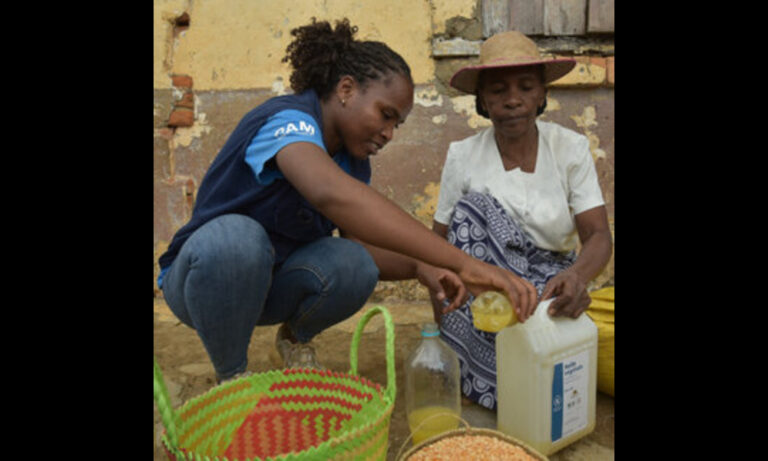Madagascar’s Ministry of Agriculture and Livestock of Madagascar and the World Food Programme (WFP) have signed a Memorandum of Understanding (MoU) to strengthen food security and transform agricultural systems in the country.
This strategic cooperation aims to promote food and nutrition security, enhance the resilience of vulnerable groups and transform Madagascar’s food systems.
The MoU is based on four key pillars: supporting the development and implementation of agricultural policies; establishing coordination, strategic direction and monitoring mechanisms for joint projects and programmes; contributing to strengthening community resilience and self-sufficiency in food production; and developing South-South cooperation.
“Through innovative, inclusive and appropriate solutions, we are collaborating with our partners to build food systems that can withstand shocks and ensure human dignity,” WFP acting country director and representative Mamadou Mbaye said.
He disclosed that other innovative interventions will include facilitating market access for smallholder producers through home-grown school feeding, climate risk management through resilient agriculture, agricultural insurance, and the promotion of renewable energy through the Rapid Rural Transformation initiative.
The collaboration under the MoU, effective from December 2024, will run until the end of 2028 and is aligned with national priorities and the United Nations’ Sustainable Development Goals.
Agriculture plays a crucial role in Madagascar’s economy, accounting for around 24 percent of the country’s gross domestic product and employing almost 80 percent of the working population.
Despite its significance, the sector faces major challenges, including climatic shocks, low productivity, limited access to markets, inadequate infrastructure and significant post-harvest losses.
Malagasy Agriculture and Livestock Minister Hajarison François Sergio said the agreement with the WFP “is part of an ambitious and visionary approach.”
“It reflects our shared determination to address the strategic challenges of food security, sustainable development and resilience to climatic and economic shocks,” Sergio said.
WFP’s Country Strategic Plan (2024-2028) aligns with the government’s vision to strengthen the resilience of rural communities in several areas, including the development of nutrition-sensitive agricultural value chains in support of the National Multisectoral Action Plan for Nutrition IV and the creation of food reserves for times of crisis.
JN/APA


